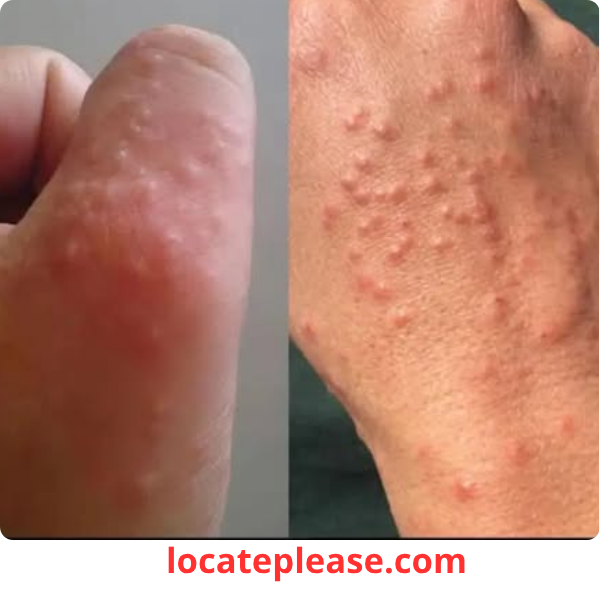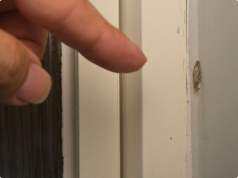A tiny red dot on your arm. A faint rash between your fingers. An itch that gets worse at night. You might brush it off as dry skin, an insect bite, or a mild allergy. But in the UK, health experts are sounding the alarm: these small red spots could be a sign of scabies — and the country is currently facing a significant outbreak.
With over 3,600 hospital-diagnosed cases reported nationwide and rising, doctors are urging the public not to ignore the symptoms — and especially not to avoid seeking help due to embarrassment.
Scabies is more than just an itch. It’s a highly contagious skin condition that spreads quickly through close physical contact — and without prompt treatment, it can lead to widespread infestation and secondary infections.
What Is Scabies?
Scabies is caused by the Sarcoptes scabiei mite — a microscopic parasite that burrows into the skin to lay eggs. The body’s allergic reaction to the mites, their eggs, and waste causes an intensely itchy rash.
Despite common misconceptions, scabies is not a sign of poor hygiene. It can affect anyone, regardless of age, income, or cleanliness.
Common Symptoms: What to Look For
The early signs of scabies are easy to miss — but they shouldn’t be ignored:
- Small red bumps or blisters — often in a line or cluster
- Intense itching, especially at night (a hallmark symptom)
- Thin, irregular burrow tracks on the skin (tiny raised lines)
- Rash in common areas: between fingers, wrists, elbows, armpits, waist, genitals, and buttocks
In young children, the elderly, and people with weakened immune systems, the rash can also appear on the:
- Head and neck
- Palms of the hands
- Soles of the feet
A severe form called crusted (or Norwegian) scabies can occur in immunocompromised individuals. It causes thick, scaly, flaky skin packed with thousands of mites — making it extremely contagious.
Where Is the Outbreak Happening?
The UK is experiencing unusually high scabies cases, with a notable spike in the north of England. According to Professor Kamila Hawthorne, Chair of the Royal College of General Practitioners (RCGP), GP diagnoses are above the five-year average and still rising.
She emphasized that while scabies is not life-threatening, it can cause severe discomfort and complications if left untreated.
“It can be very itchy and irritating,” she said.
“If not properly treated, it can spread and increase a patient’s risk of complications — such as secondary skin infections or worsening of existing skin conditions like eczema.”
Why Are Cases Spiking?
Several factors are contributing to the surge:
1. Social Stigma
Many people delay seeking help because of the shame or embarrassment associated with scabies — wrongly seen as a “disease of the dirty.” This stigma leads to delayed treatment and increased spread.
2. Treatment Shortages
There’s an ongoing shortage of topical treatments like permethrin cream, the first-line medication for scabies. This has made it harder for patients to access care quickly.
3. Close-Contact Settings
Scabies spreads through prolonged skin-to-skin contact, making it common in:
- Households
- Care homes
- Schools
- Prisons
- Homeless shelters
Crowded living conditions and delayed diagnosis fuel the outbreak.
How Is Scabies Treated?
The good news? Scabies is treatable and curable.
Standard treatment includes:
- Permethrin 5% cream — applied from the neck down and left on for 8–14 hours
- Oral ivermectin — for severe cases or crusted scabies
- Antihistamines — to relieve itching
- Medicated lotions or antiseptics — if secondary infection occurs
Important: All household members and close contacts must be treated at the same time, even if they have no symptoms.
What You Should Do If You Notice Symptoms
- Don’t scratch — this can lead to infection.
- Avoid close contact with others until treated.
- Wash bedding, towels, and clothes in hot water (at least 60°C) and dry on high heat.
- See a GP or dermatologist — do not self-diagnose or delay care.
✅ Tip: Take a photo of the rash to show your doctor — it helps with diagnosis.
How to Prevent the Spread
- Treat everyone in the household at once.
- Seal non-washable items in plastic bags for 72 hours (mites can’t survive without human contact).
- Avoid sharing towels, clothing, or bedding.
- Inform schools, care homes, or employers if needed to prevent outbreaks.
Final Thoughts: Don’t Let Stigma Keep You from Getting Help
Those small red spots on your arm or persistent nighttime itch might seem minor — but in today’s climate, they could be an early warning of scabies.
This is not a condition to tough out or hide. It’s not your fault, and it’s not a reflection of your hygiene.
It is, however, contagious — and the sooner you get treatment, the faster you can stop the spread and find relief.
So if you notice unexplained rashes or itching — especially at night — see a doctor.
Your health — and the health of those around you — depends on it.
🩺 Scabies isn’t a scandal. It’s a skin condition. And it’s time we treated it that way.






